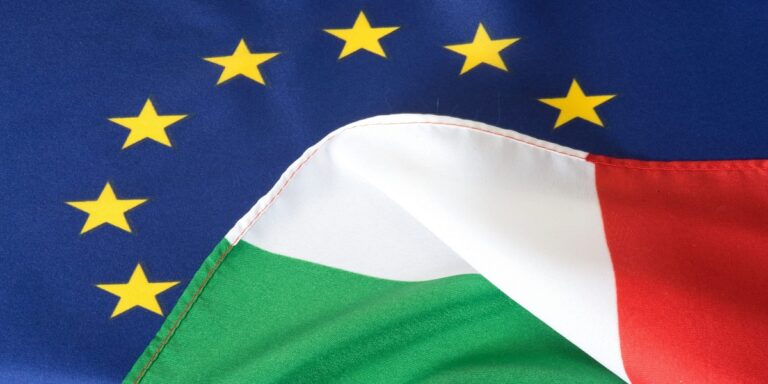On June 21, the Employment, Social Policy, Health and Consumer Affairs Council (EPSCO) of the EU will discuss a significant proposal to restrict the flavors of e-cigarettes and other nicotine products. This initiative, led by Latvia and Denmark, aims to implement stricter regulations to protect youth from the potential harms of these products. The outcome of this discussion could lead to unified and more stringent e-cigarette regulations across the EU.
Overview of the Proposals
Proposal 1: Protecting Youth from Novel Tobacco and Nicotine Products
Proposers:
The Latvian delegation, supported by Cyprus, Estonia, Ireland, Latvia, Lithuania, Luxembourg, Malta, Portugal, Slovenia, and Spain.
Document Title:
Call for EU Action to Protect Youth from the Harm of Novel Tobacco and Nicotine Products.
Discussion Time:
June 21, 2024, during the EPSCO Council (Health) meeting as “Other Matters.”
Summary:
- Background and Purpose: Highlights the increasing use of e-cigarettes among teenagers and the associated risks.
- Main Points:
- Rising trend of e-cigarette use among teenagers.
- Risk of nicotine addiction.
- Impact of cross-border sales and online marketing on youth.
- Goals and Proposals:
- Implement stricter EU-level regulations to ban flavors in e-cigarettes.
- Strengthen cooperation among member states to prevent cross-border sales of e-cigarettes.
Proposal 2: Protecting Children from Marketing and Sales of Nicotine Products
Proposers:
The Danish delegation, supported by Denmark, Estonia, Finland, France, Germany, Ireland, Luxembourg, Malta, Netherlands, Poland, Slovenia, and Spain.
Document Title:
Strengthening Efforts to Protect Children from Direct Marketing and Sales of Tobacco and Nicotine Products, Especially on Digital Platforms.
Discussion Time:
June 21, 2024, during the EPSCO Council (Health) meeting as “Other Matters.”
Summary:
- Background and Purpose: Focuses on regulating the marketing of tobacco and nicotine products on digital platforms to protect children.
- Main Points:
- Health hazards of nicotine to teenagers.
- Marketing strategies of e-cigarettes and their appeal to youth.
- Need for unified regulations at the EU level.
- Goals and Proposals:
- Implement stricter regulations, including banning flavors in e-cigarettes, limiting nicotine content, and banning certain products.
- Require social media platforms to take greater responsibility for the marketing and sales of tobacco and nicotine products.
- Call on the European Commission to initiate a broad discussion on nicotine products.
Current Landscape and Regulatory Environment
Existing Bans and Consultations
Countries with Flavor Bans:
Denmark, Estonia, Finland, Hungary, Lithuania, Netherlands, and Slovenia have already passed laws banning flavored e-cigarettes.
Ongoing Discussions:
Spain is conducting public consultations, and Latvia is in the process of introducing flavor restrictions.
Tobacco Products Directive (TPD):
Under the current TPD, EU member states can set their own rules regarding e-cigarette flavors.
Proposed Unified Regulations
If adopted, these proposals will result in:
- Stricter and more unified regulations across the EU.
- Regulation of flavor use, nicotine content, cross-border sales, and online marketing.
- Increased responsibilities for social media platforms in monitoring and restricting nicotine product advertisements.
Debate and Opposition
European Tobacco Harm Reduction Advocates (ETHRA)
Opposition to Proposals:
ETHRA opposes these proposals, arguing that the measures are unlikely to protect young people and could cause more harm overall.
Concerns Raised:
- A flavor ban would effectively be a total ban on safer nicotine products, as all such products have some flavoring.
- The potential demand for nicotine will not disappear, leading to unintended consequences.
- Emphasis on basing directives on strong, credible evidence rather than weak or misleading data.
ETHRA’s Letter:
ETHRA sent a letter to all EU health ministers, emphasizing the life-or-death consequences of these directives and urging a cautious approach.
Implications for Nicotine Consumers
For Young Consumers
Reduced Access:
Stricter regulations and flavor bans aim to reduce the appeal and access of e-cigarettes to minors, addressing public health concerns.
For Adult Consumers
Impact on Choices:
A flavor ban may limit the variety of e-cigarette products available to adult consumers who use these products as a smoking cessation tool.
Potential Market Shifts:
Stricter regulations could lead to changes in the market dynamics, potentially affecting prices and availability.
For the Industry
Regulatory Compliance:
Manufacturers and retailers will need to adapt to new regulations, ensuring compliance with stricter EU-wide standards.
Innovation and Development:
The industry may need to innovate to develop products that comply with the new regulations while still appealing to consumers.
FAQs
What are the main proposals being discussed at the EPSCO meeting?
The proposals focus on banning flavors in e-cigarettes, limiting nicotine content, and regulating marketing on digital platforms to protect youth.
Which countries are leading these proposals?
Latvia and Denmark are leading the proposals, with support from several other EU member states.
How will these proposals impact e-cigarette regulations in the EU?
If adopted, the proposals will lead to stricter and more unified regulations across the EU, affecting flavor use, nicotine content, and marketing practices.
What is the current status of e-cigarette flavor bans in the EU?
Several countries, including Denmark, Estonia, Finland, Hungary, Lithuania, Netherlands, and Slovenia, have already passed laws banning flavored e-cigarettes. Spain and Latvia are in the process of introducing similar restrictions.
What is ETHRA’s stance on these proposals?
ETHRA opposes the proposals, arguing that a flavor ban would effectively ban all safer nicotine products and that directives should be based on strong evidence.
How might these proposals affect adult nicotine consumers?
Adult consumers may face reduced product choices and potential market shifts, affecting the availability and prices of e-cigarettes.


















